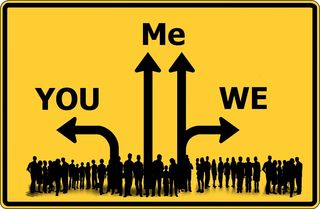Personality
Where Are the Prosocial People?
A new meta-analysis shows which traits are linked to prosocial behavior.
Posted January 15, 2020 Reviewed by Gary Drevitch

Prosocial behavior such as helping or sharing with others not only facilitates interaction and cooperation between people and groups, but indeed seems necessary to overcome global challenges (e.g., climate emissions, economic inequality). For several decades now, a successful way to identify the predictors of prosocial behavior has been so-called economic games. In these games—with the Dictator Game, the Prisoner’s Dilemma Game, and the Public Goods Game as prominent examples—participants are asked to make decisions that affect their own as well as other people’s outcomes (e.g., financial profit). By varying the games or their set-up, one can easily test which factors affect the occurrence and/or extent of prosocial behavior and under which circumstances. For instance, one can investigate whether people make more prosocial decisions, such as sharing a monetary endowment with another person, when they have met the person being affected by their decision before making the decision.
Besides structural or situational factors that can facilitate or hamper prosocial behavior (like knowing another person or not), results from a large number of studies using economic games have shown that people differ with regard to how prosocial or selfish they are. That is, whereas some people are willing to forgo individual gains to benefit others, others are primarily interested in maximizing their own profits. In turn, some personality traits (on which people can have either lower, average, or higher levels) have been linked to prosocial behavior in economic games. In an impressive attempt to structure the plethora of corresponding findings, Isa Thielmann, Giuliana Spadaro, and Dan Balliet have recently conducted a meta-analysis—that is, an analysis across the results from several studies—to test which personality traits consistently predict prosocial behavior across different situations (i.e., games or set-up of a game). Here is the gist of what they did and found.

51 traits, 6 economic games, 4 broad affordances
In their meta-analysis, the researchers included all studies in which at least one personality trait was assessed together with prosocial behavior in at least one of the following six economic games: Dictator Game, Ultimatum Game, Trust Game, Prisoner’s Dilemma Game, Public Goods Game, and Commons Dilemma Game. These games were chosen because they have most commonly been used in prior psychological research, and because they model different types of situations in which people can show prosocial versus selfish behavior.
Using this strategy, the researchers were able to include 770 studies reporting data on 51 different (broad or narrow) personality traits from 152,077 participants overall. Further, they considered the characteristics of the specific games used, and classified them alongside the affordances they provide. Affordances describe situational characteristics that allow certain personality traits to become expressed in behavior. For example, a typical party allows the expression of traits related to one’s level on Extraversion, but it allows less (or not at all) the expression of traits related to one’s level on Conscientiousness.
With regard to the specific games, Thielmann et al. identified four broad affordances that allow different personality traits to become expressed: (1) possibility for exploitation (i.e., a person can withhold gains from another for themselves), (2) possibility for reciprocity (i.e., a person can positively or negatively react to another person’s behavior), (3) temporal conflict between short- and long-term interests (i.e., a person can consider the long-term consequences of their actions rather than acting on impulse or considering the short-term consequences only), and (4) dependence under uncertainty (i.e., a person’s ultimate outcomes depend on how other people decide). For each trait, the researchers then predicted whether—theoretically speaking—a trait should relate to prosocial behavior in a situation (game) or not, depending on the affordances the situation (game) provided.

Main findings
Considering all situations included in the meta-analysis (i.e., across all games, irrespective of the specific affordances they provide) and, thus, on the most general level, three traits were found to be linked to prosocial behavior most strongly: Honesty-Humility from the HEXACO Model of Personality (a broad trait capturing characteristics such as being fair, modest, and sincere vs. boastful, deceitful, and greedy), Social Value Orientation (a more narrow trait characterized by the degree to which a person weights their own welfare in relation to the welfare of others), and Guilt Proneness (a more narrow trait characterized by the degree to which a person experiences negative feelings due to own wrongdoing).
Importantly, though, on a more specific (game-based) level, the traits yielded noteworthy differences in how strongly they predicted behavior in different situations. Specifically, in line with the theorizing, relations were stronger in games providing affordances for the expression of a certain trait as compared to games providing other (unrelated) affordances. For example, Honesty-Humility and Social Value Orientation were only related to prosocial behavior in games providing a possibility for exploitation, but not in games exclusively providing a possibility for reciprocity or any other of the affordances.
Overall, the results of this meta-analysis show that there are stable individual differences that can explain who is willing to behave in a prosocial manner in which situation(s). But it is important to consider the characteristics (and affordances) of situations in which prosocial behavior can occur, because these characteristics allow different personality traits to become expressed in behavior. Thus, who behaves prosocially depends on the match between certain personality traits and certain situational circumstances allowing these very traits to be expressed.
References
Thielmann, I., Spadaro, G., & Balliet, D. (2020). Personality and prosocial behavior: A theoretical framework and meta-analysis. Psychological Bulletin, 146, 30-90. http://dx.doi.org/10.1037/bul0000217


